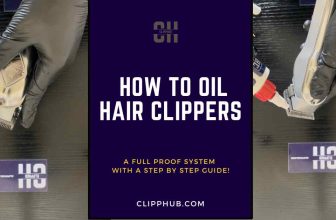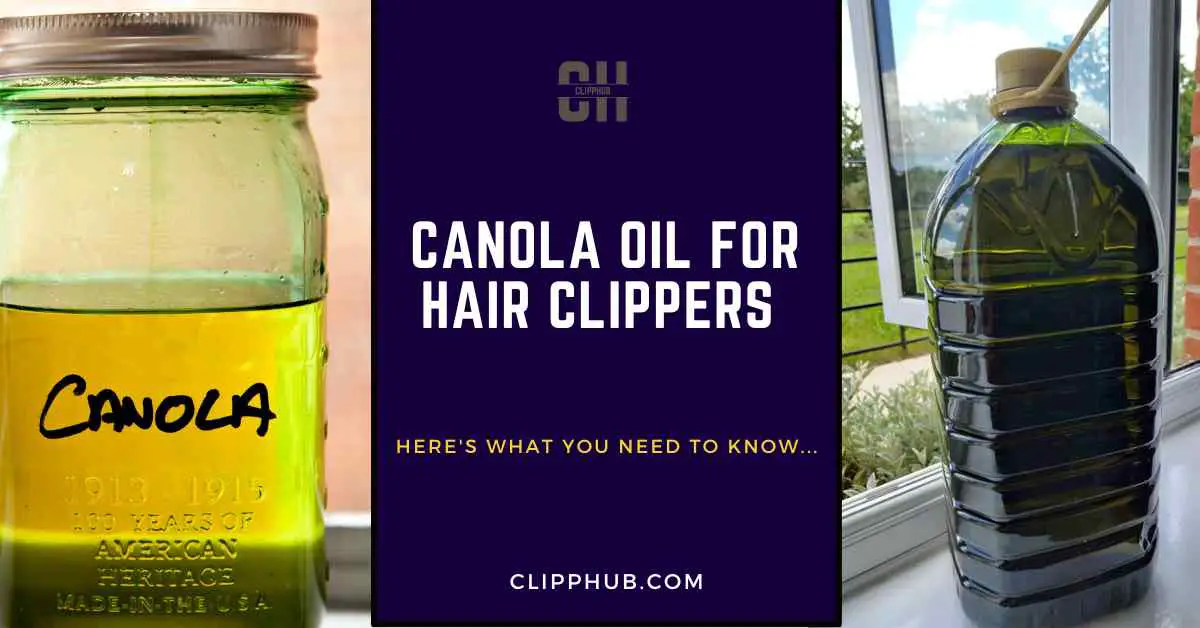
Your hair clippers need oiling, right?
I can see why you are here, I was once in a situation where I needed something to desperately oil my clippers.
But is canola oil for hair clippers?
I once had this question and with deep research and a little bit of personal experience I was able to find the answers to this question and I would be more than happy to share them with you.
Can I use Canola oil for hair clippers?
Is canola oil a good hair clipper oil?

Canola oil is an Unsaturated fat. This means that Canola oil has more plasticity than its highly saturated alternate counterpart in coconut oil.
Canola oil is easily spreadable and offers a great deal of lubrication. But that doesn’t mean it will make a good oil for your clippers.
Canola oil is not as light as the light and spreadable oil used in regular hair clipper oil, however, it can still be as effective.
Mineral oil is a highly refined petroleum extract that has great lubricating properties and can handle heat very well.
But even though I am against canola oil on hair clippers, canola oil has properties that can make a decent lubricant.
If you must use the oil, it can be slightly beneficial, I outline the benefits below.
Heat resistance:
Hair clippers are machines whose blades are at very high speeds constantly. Because of this tension and friction can build up between the top cutting rail and the top cutter as shown below:
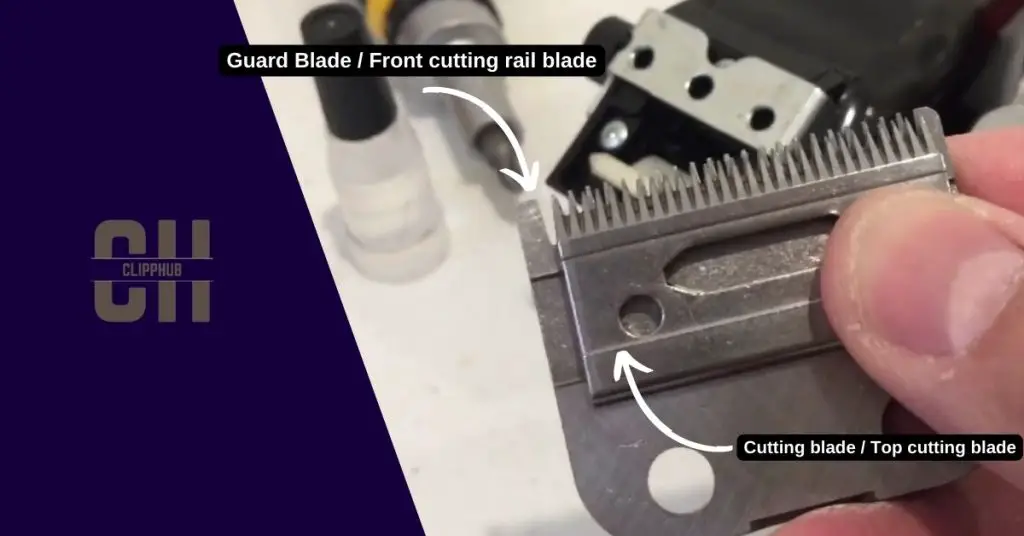
This friction can produce heat and can wear the blades of your hair clipper out sooner, meaning they would need to get sharpened, overall reducing the longevity of your hair clippers.
This process can happen a lot sooner if you simply do not oil your hair clippers regularly or at all for that matter.
Lack of oiling can ruin your hair clippers and at the same time mean your hair clippers cut horribly.
However, you must make sure the liquid you put on your hair clippers can handle any heat produced by hair clippers and lubricate effectively without changing form.
Canola oil is that type of oil.
Canola oil at the end of the day is a Vegetable oil. Vegetable oils are made for cooking and to act as lubricants between pots and food.
It has great nutritional properties, however here, were to talk about the former.
Canola oil can handle heat up to 450f (232*c), which means that canola oil can quite easily handle the heat that your hair clippers have at any time no matter how hot they become.
It also provides adequate lubrication to help reduce the friction between the blades to help get your hair clippers back to top-cutting performance.
Canola oil is thin:
As mentioned previously, mineral oil is a thin oil that can easily get around hair clipper blades without much trouble.
Compared to its vegetable oil counterparts such as olive oil and coconut oil, while these oils can be used on hair clippers too, canola oil would be the best solution for lubrication as it has the lowest saturated fat content out of all these.
Canola oil containing such little amount of saturated fats means that the oil stays in its liquid form for a long period of time compared to organic coconut oil which rapidly can turn back into its solid state.
This oil can turn thick rapidly with a slight change of condition is not an oil you should be using on hair clippers.
Canola oil in this case is thin enough to get around your hair clipper blades and provide them with the lubrication needed to stop the friction between the blades.
Canola oil also does not rapidly harden around at room temperature and so does not clump up easily over time.
However, while canola oil has great properties, it does not mean that it should be your go-to clipper oil for the future.
Negatives of using canola oil on hair clippers
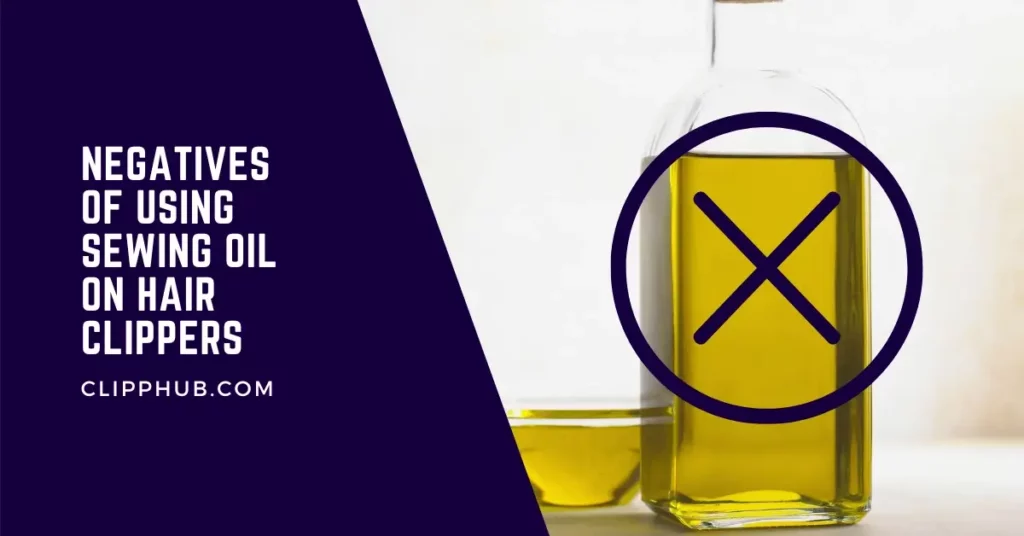
Canola oil while being a good alternative to hair clipper oil is not clipper oil and you should avoid making it the long-term solution to your hair clipper.
While Canola oil is a very thin oil, It is not nearly as thin as clipper oil. This means that while canola oil is able to quite easily get in and around your hair clipper blades, just like regular hair clipper oil could, it may not as easily be able to get out.
Clipper oil comes from highly refined mineral oil and any excess oil quickly drips out after use however this is not always the case with canola oil.
Canola oil is thicker, not overly thick but still enough to cause your motor problems. ‘
Excess canola oil that does not easily leave your hair clipper blades by dropping out after use, can easily make its way into your hair clipper and build up around the motor.
If you own a pair of cordless electric hair clippers, this can be a problem as they more than likely contain rotary motors.
If hair, oil, or dirt get in between the parts of a rotary motor it can rapidly decrease the speed at which your hair clipper blades cut. This eventually will kill the cutting performance of your hair clippers.
Canola oil can be used as a hair clipper alternative but I would advise just like I would with any vegetable oil alternative to only use the oil sparingly.
If used, it should be a short-term solution while you look to source for a proper hair clipper oil such as the ones below:
WAHL HAIR CLIPPER OIL Best overall
ANDIS HAIR CLIPPER OIL Rust prevention
OSTER HAIR CLIPPER OIL Quick spreading
I explain each one in my best hair clipper oil guide.
However in case you wish to continue with hair canola oil as your temporary hair clipper of choice, you need to know how to best apply it to reduce as much damage done.
I outline the process below..
How to Apply Hair Clipper to Your Hair Clippers

Below I outline the process of oiling your hair clippers, however, it is essential that you practice step 5 as it could affect how damaged your clippers can become.
Make sure you oil your hair clippers after you have cleaned and sterilized them to make sure the oil can be as effective as possible.
Here is a brief guide on how to oil your hair clippers:
Step 1:
Turn your hair clipper on
Step 2:
Apply three drops of oil at the point where the top cutting rail meets the clipper. Apply the oil across that front rail.
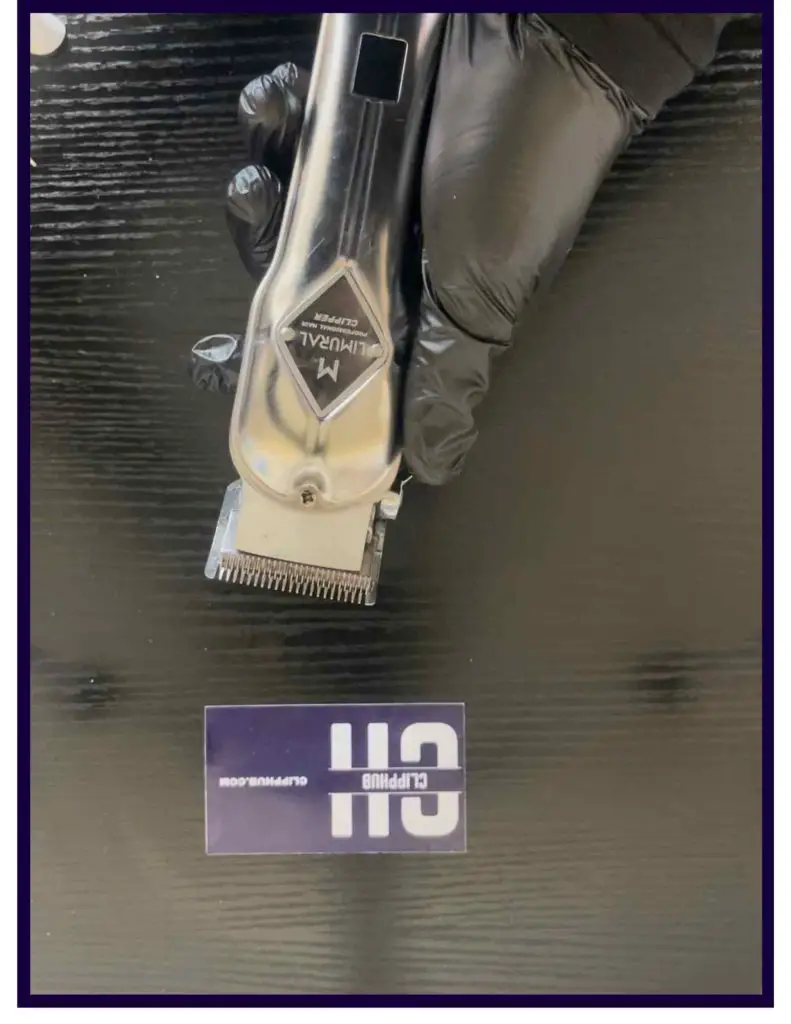
Step 3:
Apply a drop of oil to either side of the hair clipper

Step 4:
Turn the hair clippers off and turn them upside down to allow excess hair clipper oil to slide out.
Step 5:
Leave your hair clippers upside down for 30 seconds to ensure as much excess oil comes off the blades. Then using a cloth, wipe away any excess oil.
Follow this process every 3-4 uses if you use oil.
Removing excess oil is key. oil will build up inside hair clippers over time if you allow it to.
So removing any excess is a non-negotiable if you don’t want to run that risk.
Conclusion
You came to this article asking yourself, is canola oil for hair clippers?
The answer is no, it’s not, Avoid using canola oil on your hair clippers, but if you must, it must be done as a stop-gap while you source for hair clipper oil.
The oil rapidly building up in your hair clippers as it’s not able to get out as easily as hair clipper oil.
If you have found this article helpful, please leave your comment about your experience with canola oil and how and check out other articles relating to this topic:





